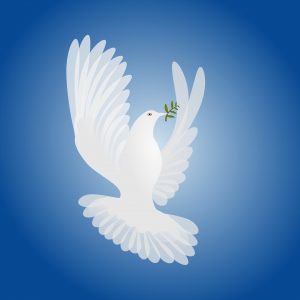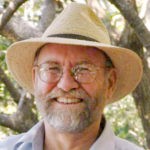a guest post by Bill Lewis
 Thomas Kelly writes: “Life from the Center is a life of unhurried peace and power. It is simple. It is serene. It is amazing. It is triumphant. It is radiant. It takes no time, but it occupies all our time. And it makes our life programs new and overcoming. We need not get frantic. He is at the helm. And when our little day is done we lie down quietly in peace, for all is well.”
Thomas Kelly writes: “Life from the Center is a life of unhurried peace and power. It is simple. It is serene. It is amazing. It is triumphant. It is radiant. It takes no time, but it occupies all our time. And it makes our life programs new and overcoming. We need not get frantic. He is at the helm. And when our little day is done we lie down quietly in peace, for all is well.”
What an invitation – to live into simplicity, serenity and peace. Yet we live in a world that seems to be more and more violent and chaotic. In too many ways we practice violence towards ourselves, towards others, and towards creation. We spend our time choosing sides, tearing one another down, and disregarding the value of others – including ourselves. Much of our lived reality contrasts sharply with the invitation to serenity. But is there an alternative to the fight-or-flight reactionism? What would a way of nonviolence look like – a way that stands firm against violence without resorting to violence?
Nonviolence towards self
It starts with practicing peace and nonviolence within. Not all violence is obvious, perhaps especially when we are violent towards ourselves. We often don’t even notice when the problem starts when we forget our core identity in God. Our forgetfulness of this identity leads to hurry, busy-ness, anxiety, stress, self-criticism and stinkin’ thinkin’ (to use AA’s language). All of these are forms of violence directed inward.
How do we stop the cycle and remember our core identity in God? What would it take for us to respond to the invitation to be the non-anxious person in every situation and have a deep well of inner resources to draw upon? One time-tested way to move toward these ideals is to sit quietly before God each day until we hear the message that “We are a beloved daughter/son of God.” Once we recognize our own deepest nature as the beloved of God, we are then able to begin taking steps of living nonviolently towards others and all of creation.
Nonviolence towards others
The subtleties of (and propensity towards) violence that we notice in our own lives gives us a reference point to work with others. As Marshall Rosenberg, the founder of NonViolent Communication, writes:
“If ‘violent’ means acting in ways that result in hurt or harm, then much of how we communicate—judging others, bullying, having racial bias, blaming, finger pointing, discriminating against others, speaking without listening, criticizing, name-calling, reacting when angry, using political rhetoric, being defensive or judging who’s ‘good/bad’ or what’s ‘right/wrong’ with people—could indeed be called ‘violent communication.’”
When we judge, bully and blame, we are engaging in violent communication and action toward the people around us. What a contrast and delight it would be to be known instead as a person of love, joy, peace, patience, kindness, goodness, gentleness, faithfulness and self-control. The fruit of the Spirit mentioned in Galatians are truly a description of the nonviolent life towards the people and things around us.
What we gain from a nonviolent life
With a nonviolent mindset, we are able to watch for the work of God in the world, and respond as a uniquely created person in a specific time and specific circumstances. We cultivate an attitude of watchful gratefulness, always ready to respond to every situation with grace, power and compassion.
By cultivating an inner peace, we are able to find our security, affection and authority from God rather than our circumstances. By starting and encouraging ever-expanding ripples of grace, we learn to relate cooperatively and in harmony with those around us. Finally, from those places of serene strength, we can reach out to our world in life-affirming and compassionate ways.
Welcome to an invitation to choose to live simply, serenely and peacefully.
 Bill will explore the many facets of nonviolence in his upcoming course, The Nonviolent Life, starting Monday, September 12. Join him to learn more about the methods of cultivating a life of nonviolence towards self and others. LEARN MORE
Bill will explore the many facets of nonviolence in his upcoming course, The Nonviolent Life, starting Monday, September 12. Join him to learn more about the methods of cultivating a life of nonviolence towards self and others. LEARN MORE
 Bill Lewis holds an MBA, a master’s degree in Christian Spiritual Formation and currently practices Spiritual Direction. Bill also serves on the Spiritual Formation committee at a Presbyterian church and practices Spiritual Direction. One of Bill’s passions is leading monthly outings exploring natural areas.
Bill Lewis holds an MBA, a master’s degree in Christian Spiritual Formation and currently practices Spiritual Direction. Bill also serves on the Spiritual Formation committee at a Presbyterian church and practices Spiritual Direction. One of Bill’s passions is leading monthly outings exploring natural areas.






